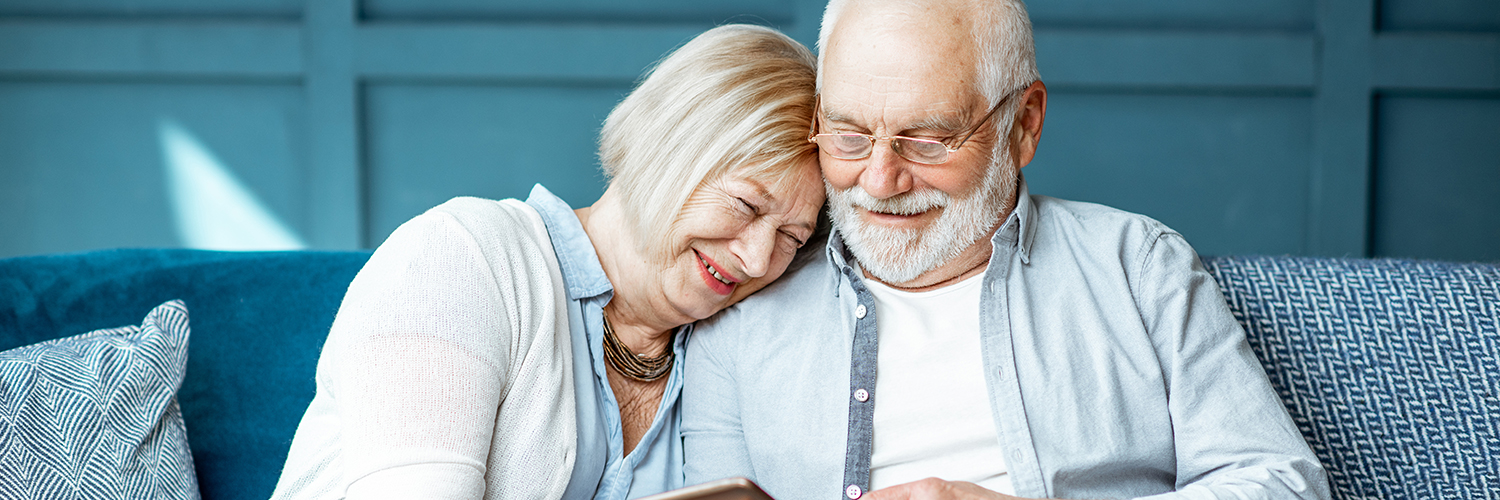SLEEP APNOEA
A bad night’s sleep may leave you feeling drowsy and irritable, but if it happens all the time it can also affect your overall health. A common sleep disorder, called sleep apnoea, can up the risk of high blood pressure, heart attack and atrial fibrillation.
Sleep apnoea affects 18 million Americans, yet most adults don’t know they have it. Common signs of sleep apnoea include pauses in breathing while sleeping, excessive snoring and daytime sleepiness. If you find it difficult to stay awake, concentrate or perform simple tasks, talk to your health care provider. The good news is there are ways to prevent and treat sleep apnoea that don’t involve medications.
What is sleep apnoea?
Sleep apnoea is a serious sleep disorder. It happens when someone’s breathing stops or becomes very shallow while they sleep. These pauses in breathing usually last for 10 to 20 seconds, but can last longer and can happen as many as 30 times per hour. The most common form, obstructive sleep apnoea (OSA), occurs when the airway is partially or totally blocked for brief periods of time while sleeping. This happens if the tongue gets in the way, if the throat muscles relax and collapse too much, or there are structural issues in the throat or neck. Central sleep apnoea happens when the brain fails to signal the muscles that control breathing. Some people have both obstructive and central sleep apnoea.
How it hurts your health
Sleep apnoea can leave you tired throughout the day, increasing the likelihood of accidents, poor performance and judgment. OSA has also been linked to a host of serious cardiovascular problems, including:
- coronary artery disease, a narrowing of the blood vessels that supply blood and oxygen to your heart
- heart attack—people with untreated OSA are twice as likely to have a heart attack
- stroke
- sudden cardiac death
- high blood pressure, a major risk factor for heart disease and other medical problems
- abnormal heart rhythms, especially atrial fibrillation; people with OSA are four times more likely to have AFib than those without OSA
Central sleep apnoea seems to occur mainly in patients with heart failure.
Sleep Apnea by the Numbers
- More than 18 million adult Americans have sleep apnoea.
- One in four older people have some degree of sleep apnoea.
- 4 out of 5 cases go undiagnosed.
- It occurs in about half of people with heart failure or atrial fibrillation and one-third of people with hypertension and coronary artery disease.
Who is at risk?
Although sleep apnoea is twice as common in men, women have a higher risk for sleep problems after menopause. It’s also seen more often in people who are overweight, as well as in African-Americans, Hispanics and Pacific Islanders.
In general, it’s a good idea to talk with your doctor about sleep apnoea if you:
- are over 40 years old
- are overweight or obese—though keep in mind it can happen even if you are thin
- have high blood pressure or diabetes
- snort or snore during sleep
- your partner has mentioned that you often gasp for breath at night or stop breathing for some period of time
- know someone in your family who has had it
- have a large neck or smaller airway in your nose, throat or mouth
- get headaches in the morning
- smoke – quitting smoking is one of the main things you can do for your heart health
- have allergies
Most often, someone is clued into the problem when a sleep partner or family member complains of loud snoring and/or notices pauses in the person’s breathing followed by gasps for air.
Other signs or symptoms include:
- restless sleep
- waking up frequently during the night or having a hard time staying asleep
- being very tired or falling asleep during the day
- otherwise unexplained difficulty concentrating, which can make accidents at work or behind a wheel more likely
- waking up with the urge to urinate
There is also a connection between asthma and allergies and OSA, so talk with your doctor about these conditions as well.
Even though loud snoring is a key indicator, not everyone with sleep apnoea snores.
Many experts believe that high blood pressure, especially hard to treat cases, should be a red flag to look into sleep apnoea.
How is sleep apnoea diagnosed?
If you think you have sleep apnoea, your health care provider will do a physical exam, which includes looking in your nose, mouth and throat. He or she will also ask about your sleep habits and how you are feeling in general. Try to keep a record of your sleep schedule, fatigue levels throughout the day—including whether you have been drowsy or fallen asleep while at work—as well as any other symptoms or medical conditions.
Sleep apnoea is usually confirmed with an overnight sleep study (called polysomnography). This test usually lasts for six or more hours and is conducted by a sleep medicine specialist in a hospital or sleep clinic in a room that’s made to look like a comfortable hotel room.
Electrodes and sensors will be placed on your body to monitor and record your:
- breathing patterns
- heart rate
- brain waves and eye activity
- blood oxygen level
- muscle movements, particularly in your legs and arms
The results can objectively confirm whether you stop breathing for 10 seconds or longer at least five times per hour while sleeping. Sleep apnoea can be mild, moderate or severe based on the number of times each hour that you stop breathing or that airflow to your lungs is reduced.
| CATEGORY | PAUSES/HOUR |
| Mild | 5-14 |
| Moderate | 15-29 |
| Severe | 30 or more |
A diagnosis is often based on:
- A physical exam, especially of the upper airway
- Your medical history and sleep habits
- Results from a sleep study and other tests to show how often you stop breathing and how low the level of oxygen in your blood gets during sleep
For some people, sleep apnoea can be prevented by:
- Losing weight and/or maintaining a healthy weight. This can help reduce any physical blockages in the airway.
- Exercise. People who exercise have fewer sleep apnoea symptoms due to decreased edema, a build up of fluid in the lower legs. In a similar way, compression stockings may help.
- Sleeping on your side.
- Quitting smoking.
- Managing asthma/allergy symptoms.
Treatment will depend on the severity of your sleep apnoea.
Milder cases may be addressed by losing weight, exercise, sleeping on your side, quitting smoking, and better management of allergies and asthma, if needed. These changes may also improve sleep overall.
If there is no improvement, or if your sleep apnoea is more serious, additional treatments may be needed. These focus on keeping your airway open during sleep, and may include:
- Continuous Positive Airway Pressure (CPAP) therapy. A CPAP machine remains the first-line therapy for moderate-to-severe sleep apnoea. A mask is placed over your mouth and/or nose and a device gently blows air into your throat to keep the airway open during sleep. CPAP usually needs to be adjusted over time, so tell your health care provider if you have any discomfort. Common side effects include dry mouth, stuffy nose, irritated skin and headaches.
- Nighttime mouthpieces or oral appliances. These devices are custom-fit to your mouth—similar to a retainer or mouth guard—and help to reposition the tongue and/or jaw to keep your throat open. These are sometimes provided by dentists.
- Surgery. This option is typically reserved as a last resort and may involve procedures to remove extra tissue at the back of the throat or reposition the jaw.
Talk with your health care provider to find out whether CPAP or any of these treatments is right for you.
Of course, adopting healthy sleep habits is always a good idea and can reap big benefits. Try to:
- Go to sleep and wake up at the same time every day.
- Keep the room dark and cool.
- Do something to ease tension and wind down (take a warm bath or meditate).
- Skip alcohol, technology and exercise close to bedtime.
- Avoid alcohol, caffeine and any medications, especially sedatives that may interfere with a normal sleep cycle.
Because sleep apnoea coexists with many other health issues, including diabetes and heart disease, be sure you are following your treatment plan if you have either of these conditions.
Sleep apnoea’s role in heart disease
Getting a good night’s sleep is an important habit for overall health. To stay heart healthy, many experts say getting some quality shut-eye may prove to be as important as what you eat and how much you exercise.
How does an episode of sleep apnoea affect your heart?
Blood pressure usually drops when we sleep because we are relaxed. But there may be a 10% to 20% increase in blood pressure during sleep among people with sleep apnoea.
When there is a pause in breathing, the amount of oxygen in the blood drops. When this happens, the brain perks up and says, “Wait a minute!” It sends signals to the nervous system to tell the blood vessels to tighten and the heart rate to quicken so that more blood gets to the brain. Over time, this is thought to damage the blood vessels that supply the heart.
In addition to damaging the lining of the arteries, it is believed that sleep apnoea plays a role in cardiovascular disease by:
- Increasing the body’s “fight or flight” stress response that can cause your heart to beat faster and boost blood pressure. Excess stress makes the heart work harder for longer periods of time.
- Promoting enlargement of the left atrium.
- Triggering inflammation in the body that may promote cardiovascular risk.
- Affecting the hormones that regulate appetite, making overeating more likely.
- Having lower levels of oxygen in the body means less oxygen to the heart. In people with coronary artery disease, this can lead to heart failure.
OSA can also result in pulmonary hypertension—high blood pressure that affects the arteries in the lungs and in the heart. As a result, the right side of the heart that pumps blood through the lungs has to work harder to do so. This can also lead to heart failure.
It’s important to prepare for your appointments so that you can get all of your questions answered.
Keep a log of your sleep habits and how you’ve been feeling. Be ready to share information about other health issues or life stressors. Write down a list of questions ahead of time. Some helpful questions might include:
- Do I need a sleep study? How do I prepare for it?
- Is there a sleep specialist you would recommend?
- What will the results tell us?
- How is my sleep affecting my heart?
- What treatments would you recommend?
- Could my weight be contributing to my sleep apnoea? If so, how can I safely lose weight?
- Do I need CPAP therapy?
- Can I travel with a CPAP machine?
- What can I do to make the CPAP more comfortable?
- Will my treatment for sleep apnoea be temporary or long-term?
- What steps can I take to get a better night’s sleep? What about to lower stress?
Dr Ubaid works well with all the staff. His approach to his fellow workers is both patient and respectful. His easy going manner makes him very approachable to ask advice and he accommodates any delays graciously. I personally look forward to working with him.
Your kindness and good humour were very much appreciated and certainly put me at ease throughout the procedure, which on other ocassions has been quite daunting, your relaxed approach to my problem was very calm and professional.
In life we all need role models, if I was in training to be a doctor you would certainly fit that role for me. I thank you so much for what you have done to allow me to continue with my fitness regime and wish you well in the life ahead of you.
A great team player, all of the nursing staff are very happy to work with Salahaddin as he is polite, efficient, and has a great aura of calmness and competence and appreciates the time to be light-hearted.
What I valued as much as his erudition was his people skills, he related to everyone as an individual, his understanding, communications, interactions and personable nature were exceptional. Dr Ubaid was quite simply staggering, he is somebody that has had a significant impact on me, not just for giving me my life back and for his medical genius but for being the person that he is.
His presence radiates a warmth, he instils confidence in all those around him, he sets an example for others to follow and is a role model for others to aspire to be like. He was kind, courteous, professional, understanding, caring and highly approachable and relatable as well as the medical guru we all benefit from and rely on to give us our lives back.
In Dr Salahaddin Ubaid I had a medical genius who also contributed significantly to aiding me overcome all of the negative worries and emotions I was feeling. The care he provided to me, his attention to detail, his personal knowledge, expertise, experience and skills was outstanding.






